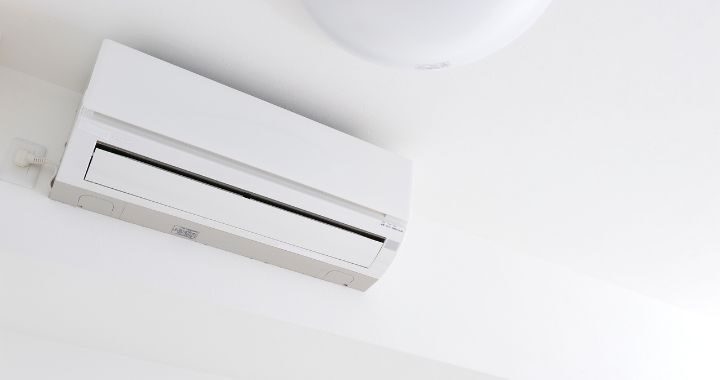With their ability to regulate temperature and humidity levels, and improve air quality, air conditioning units have become an indispensable part of our lives. However, like all appliances, air conditioners have a finite lifespan and will eventually require replacement.
Despite being a significant investment for homeowners or businesses, many may be unaware of the expected lifespan of an air conditioner. While some units can last for over two decades with proper maintenance and care, others may only work for several years before breaking down.
In this guide we will explore the factors that influence the average lifespan of an air conditioning unit and provide insights into increasing longevity to ensure maximum efficiency and cost-effectiveness.
At Mechcool we offer air conditioning services including installation and maintenance across Sussex and Surrey. Don’t hesitate to speak to us – we offer free, no obligation quotes.
How long can you expect an air conditioning unit to last in the UK?
The lifespan of an air conditioner is a crucial consideration in the selection and maintenance of a system. The average life expectancy of an air conditioning unit depends on various factors such as:
- Quality of installation
- Regular maintenance and servicing
- Usage patterns and workload
- Climate and environmental conditions
- Brand and model quality
Generally speaking, it is estimated that a well-maintained air conditioning unit can last anywhere between 10 to 15 years.
However, it is important to note that this lifespan expectancy can be significantly reduced if proper care is not taken. Neglecting regular maintenance can lead to issues such as clogged filters or faulty components which may cause the system to break down prematurely. Harsh environmental conditions such as extreme temperatures or humidity levels can also accelerate wear and tear on the unit.
If your air conditioning unit is showing signs of age or requires frequent repairs despite regular maintenance efforts, it may be time to replace your air conditioner. Upgrading to a newer model with improved features can not only increase energy efficiency but also provide more reliable cooling performance over time.
Ultimately, investing in a high-quality air conditioning system, combined with routine maintenance efforts can help ensure maximum longevity.
Factors that influence the lifespan of an air conditioner
The lifespan of an air conditioner is dependent on many factors, and each factor plays a crucial role in determining how long an air conditioning unit will last before requiring replacement or repairs.
It is essential to consider these key points when investing in an air conditioning system:
Quality of installation
Installation quality significantly affects the durability of an air conditioning system, making it crucial to ensure that a high-quality installation is carried out by professionals, like the experts at Mechcool, who follow industry standards and local building codes.
A properly installed air conditioning unit can have a life expectancy of up to 15 years or more, while an improperly installed one may fail within just a few years. The professional responsible for installing the unit must take into account factors such as:
- Proper sizing
- Correct placement
- Adequate ventilation
Failure to do so may result in higher repair costs, decreased efficiency, and reduced lifespan.
Proper installation also ensures that the air conditioning system operates at its optimal level without any safety hazards. Poorly installed systems can cause fires or emit harmful pollutants into buildings if not correctly vented or wired.
Regular maintenance and servicing
Regular maintenance and servicing is crucial in ensuring the efficient operation of climate control systems, as it helps identify potential problems early on and prevents costly repairs in the future.
Routine maintenance includes inspecting and cleaning filters, checking refrigerant levels, lubricating moving parts, and testing electrical connections. Neglecting routine maintenance can cause the system to work harder than necessary, which can lead to higher energy bills and even result in premature breakdowns.
Regular maintenance not only prolongs the lifespan of an air conditioning unit but also ensures that it operates at optimal efficiency throughout its lifetime. As a general rule, if repair costs exceed 50% of the cost of a new unit, or if it is over 15 years old, it may be more economical to replace rather than repair the unit.
Usage patterns and workload
Optimising the usage patterns and workload of a climate control system helps to ensure it operates with efficient energy consumption, leading to significant cost savings over time.
If a system is used heavily or exposed to extreme temperatures regularly, its components may wear out faster than those in a system that is used sporadically. When the system is frequently switched on and off, it experiences more stress due to thermal expansion and contraction, which can lead to premature wear and tear.
To ensure optimal cooling efficiency while extending the lifespan of an air conditioning unit, it’s recommended that users maintain a consistent temperature setting throughout the day instead of constantly adjusting it up or down.
By implementing smart usage patterns and managing workload effectively, users can significantly extend their air conditioner’s lifespan while minimising energy costs.
Climate and environmental conditions
It is important to consider how climate and environmental conditions affect an air conditioner’s longevity.
The environment in which an air conditioning unit operates has a significant influence on its performance and overall lifespan. Extreme temperatures, humidity levels, air pollution and dust can all cause wear and tear on the components of an air conditioner.
In hot climates where air conditioners are used more frequently, their lifespan may be shorter compared to those in cooler regions with lower usage rates. Additionally, high levels of humidity can lead to corrosion or rusting of internal parts while exposure to pollutants can clog filters and reduce efficiency over time.
Again, regular maintenance is key to ensuring that the system functions optimally despite these external factors.
Brand and model quality
The quality of the brand and model of an air conditioning system can greatly influence its performance and durability. As a result, when buying a new air conditioner or upgrading an existing system, it is important to research the various brands and models available on the market.
Newer models often come with advanced features that promote energy efficiency, better temperature control and reduced noise levels. Additionally, well-known brands are often associated with quality products, due to their established reputation in the industry.
Maximising the lifespan of an air conditioning unit
The most important factor in extending the lifespan of an air conditioning unit is regular maintenance. Regular inspections by a qualified technician can identify potential problems before they become major issues that could cause the system to fail prematurely. Cleaning and replacing filters regularly can keep the system running smoothly and efficiently, reducing wear and tear on vital components.
Another way to maximise the lifespan of your air conditioning unit is by ensuring it is energy efficient. Upgrading to a newer model with a good SEER (Seasonal Energy Efficiency Ratio) rating can significantly reduce energy costs while also improving overall performance.
By keeping your AC system running at peak efficiency through regular maintenance and upgrades when necessary, you can ensure that it will last as expected.
Air conditioner lifespan FAQs
Is it possible to extend the lifespan of an air conditioner through regular maintenance?
Regular maintenance can extend the lifespan of an air conditioner. This includes cleaning or replacing filters, checking refrigerant levels, inspecting electrical components and ensuring proper airflow. Professional maintenance is recommended annually to prevent breakdowns and ensure optimal performance.
Can the location or environment of an air conditioning unit affect its lifespan?
The location and environment of an air conditioning unit can affect its lifespan. Factors such as exposure to extreme temperatures, humidity levels, and dust accumulation can accelerate wear and tear on the system, potentially leading to premature failure.
Which type of unit typically lasts longest?
Some models, such as VRF (Variable Refrigerant Flow) systems, are known for their longer lifespans. These systems use advanced technology to distribute refrigerant, making them very efficient and reliable. VRF systems also allow for individual temperature control in each room or zone, which can help reduce energy consumption. While VRF systems may have longer lifespans than other types of air conditioning units, proper maintenance is still essential to maximise their longevity.
What are some common signs that your air conditioning unit may need to be replaced?
Various signs indicate when an air conditioning unit needs replacement, such as excessive noise, poor airflow, frequent repairs and high energy bills. It is essential to seek professional assistance to determine whether a replacement or repair is necessary for optimal system performance.
Contact Mechcool for air conditioning installation
Our expertise in installing and servicing a range of air conditioning systems, including VRF and ducted systems, ensures that our commercial and domestic clients in Sussex and Surrey enjoy cool and comfortable environments whilst benefiting from the longevity of their air conditioners.
Our team of experts will assess your cooling needs before recommending the most suitable system for your property, and we understand that every property has different requirements when it comes to climate control solutions, which is why we offer bespoke installations to meet your specific needs.




